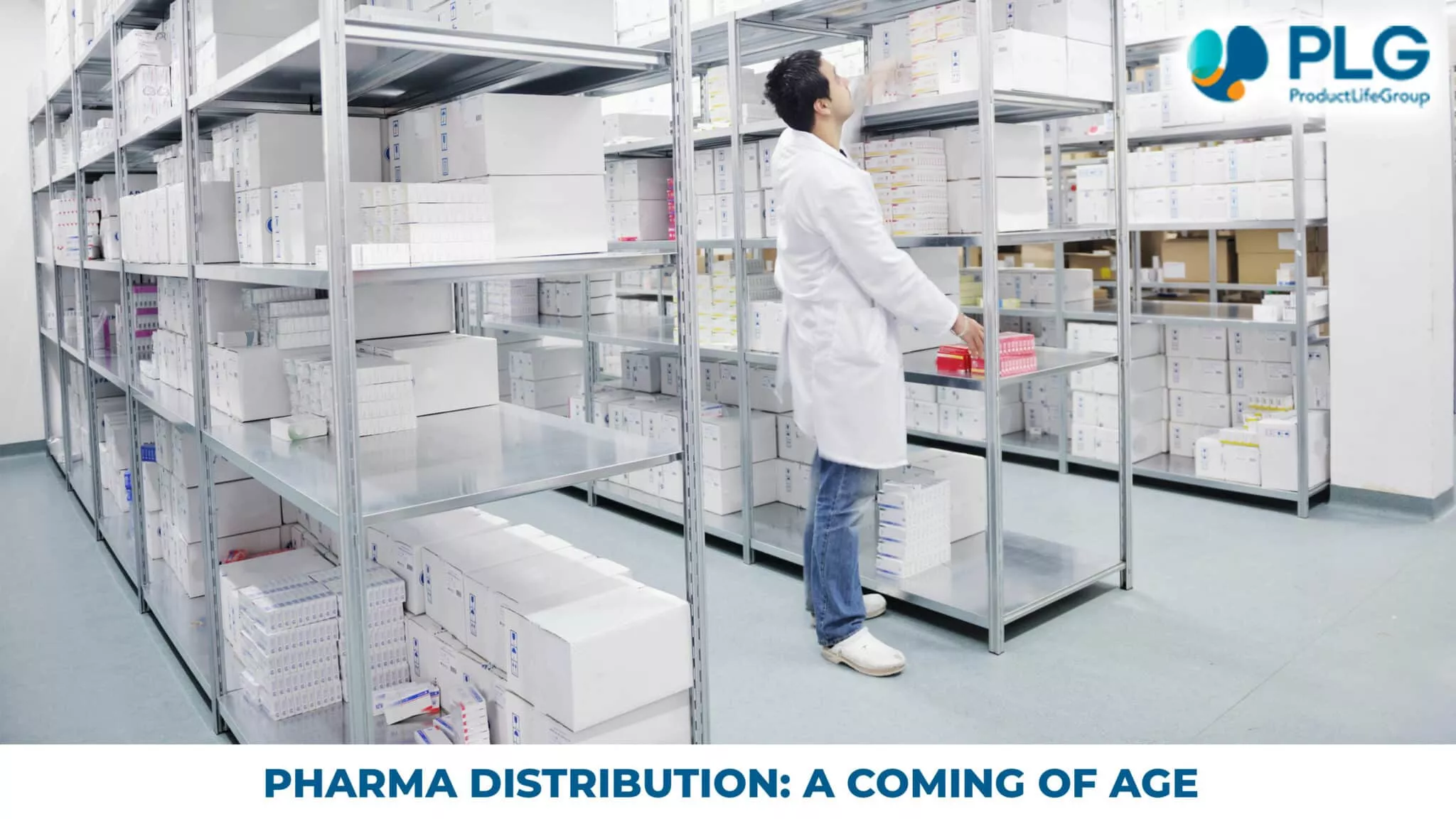
Pharma Distribution: a Coming of Age
20 june 2023

In the wake of the COVID crisis, which unveiled an immediate distribution challenge to move medicines and their ingredients from one part of the world to the hospital or pharmacy drawer shelf where a patient needed it, the logistics of pharma got out of the closet.
But pharma logistics wasn’t invented yesterday. Prior to 2020, pharma logistics was already a fast-growing sector in our industry, albeit in the background. The development of this sector came with the increase in the share of revenues associated with speciality pharma, the need for cold chains, and the appetite for pharma, big and small, to outsource non-core functions.
The pharma logistics sector is now coming of age, underpinned by strong trends in the pharma markets, and the players in this game face challenges associated with this maturity.
Pharma logistics – Pushed by market dynamics
At the core, pharma’s mission is to develop new therapies, demonstrate they are effective and safe, and ensure patients have access to the best innovation. As highlighted by Josep Tabernero, “A medicine doesn’t work if it doesn’t get to the patient”. He also highlighted that there were several challenges to address in this respect. Those include costs, supply tension, and of course, the actual logistics as an absolute prerequisite.
A medicine doesn’t work if it doesn’t get to the patient.
Prof Josep Tabernero, Chair of ESMO, ESMO 2016
Beyond the simple – yet mandatory – need to move the products to the point of delivery, the industry has been flourishing because of current dynamics in the medicines market.
Pharma companies have leveraged CMOs more in recent years. As a consequence, CMOs end up keeping stocks. Yet they have limited space and would rather use the – often expensive – space of their manufacturing plant floors to produce medicines than to keep stocks, hence a push from CMOs to push the stock-keeping service out of the manufacturing offering.
Some logistics players offer an integrated service which includes distribution, warehousing, transportation, Order to Cash and GMP services. These solutions are well suited to the needs of pharma to outsource non-core businesses and to the needs of CMOs who would rather not offer warehousing services.
On top of the different players’ choice of activities, the market itself for pharma logistics is becoming more attractive because a large fraction of new products are speciality products. They are often biologic products, come in relatively small quantities, with high unit prices, and need GMP services and specific transportation systems, e.g. cold chain transportation for biologics. Even for large pharma who traditionally had their own logistics service, handling small volumes is a challenge because it is not what their systems are set up for. External service providers capture increasing shares of those high-value markets, including notably:
- High-unit-cost medicines, often biologics that need cold-chain transportation.
- Clinical trial supplies, which by definition are in small volumes and travel to multiple destinations, requiring well-controlled conditions.
The two above are often combined, e.g. biologic cold chain clinical trial supplies.
Where to next?
Against this backdrop of a fast-growing market, the industry faces a number of challenges.
For the inbound distribution (from the manufacturing to the central distribution centre), challenges are associated with the need to handle different categories of products within one supply chain, e.g. bulk, filled, and finished products. For those products, clients require integrated service, and one-stop shop players have a clear competitive advantage in this market where barriers to entry are many, starting with the need to comply with Good Distribution Practices.
In an increasingly crowded market, winning is no longer associated with price and meeting the quality and compliance prerequisites. In the next few years, existing players and new entrants will have to offer:
- Real-time location monitoring as a standard
- Flawless execution
- A way to manage costs in the context of rising energy prices
- Customer service suited to the needs of different segments in life sciences (large pharma, emerging biotechnology etc.)
- Patient-centric services
- A sustainable approach in an industry responsible for high carbon emissions
Answers reside in a tailored approach to positioning for existing players and new entrants to establish where they want to play, a clear picture of the features that make a difference for the customer in the target market, and of course, flawless delivery.
Truly understanding the customer in all their granularity and diversity can be overwhelming, and keeping focused is essential for Pharma logistics organisations. A structured approach to prioritising opportunities for growth is needed, as well as a good understanding of the environment in which organisations operate.
Take a journey with PL Consulting and discover how we support our clients.
Register to our news and events
Go to our Events to register
Go to our News to get insights
